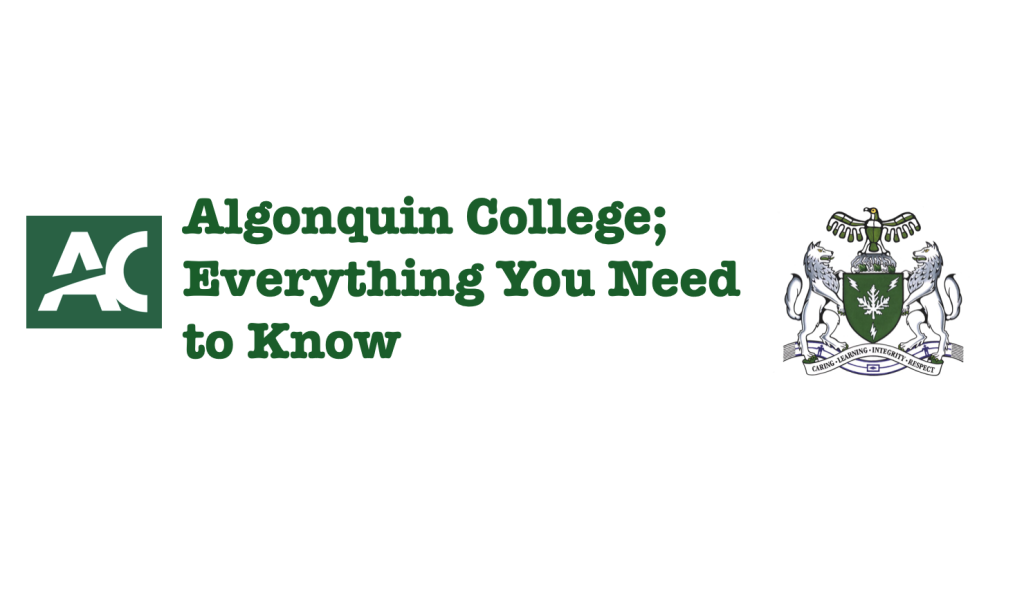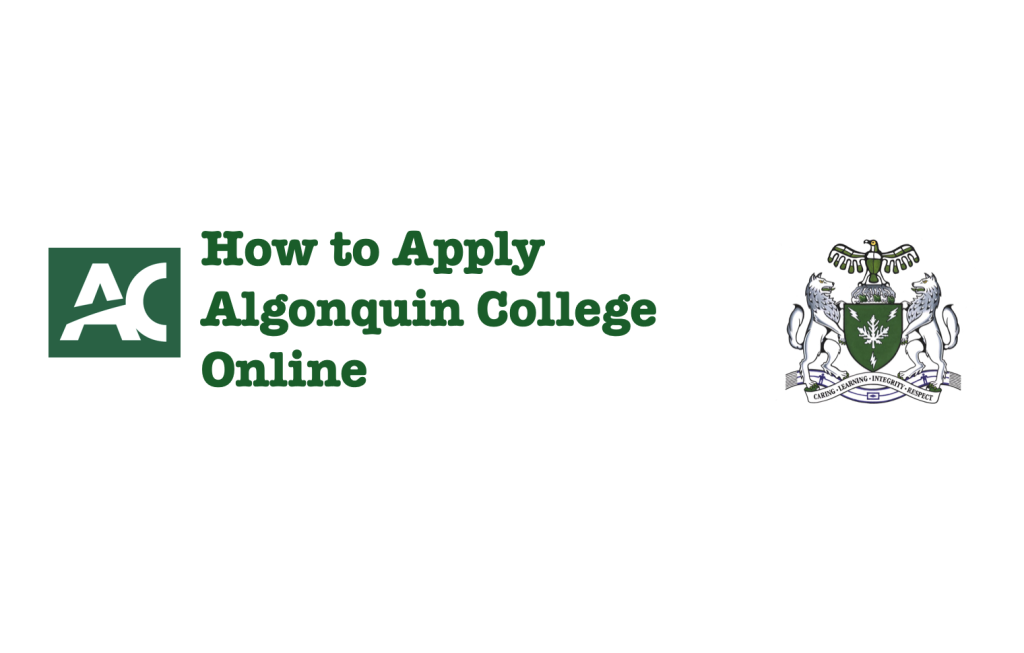Are you an international student dreaming of studying in Ontario, Canada? Canada, offers a range of excellent colleges for international students. In this comprehensive step-by-step guide, we outline the process of applying to Ontario colleges, making your transition from overseas to Ontario as smooth as possible.
Ontario is home to world-class institutions and offers a diverse and inclusive educational environment that attracts students from all corners of the globe. However, navigating the application process and understanding the requirements can be overwhelming. That’s where we come in. Our guide will cover everything you need to know, from researching colleges and programs to submitting your application and preparing for a successful study abroad experience.
So, whether you’re interested in business, engineering, arts, or any other field, get ready to embark on an exciting journey of education and cultural exploration. Let’s get started on your path to success in Ontario!
Table of Contents
Overview of Ontario’s college system
Ontario’s college system is renowned for its high-quality education and practical training programs. With over 25 public colleges and numerous private institutions, there is a wide range of options available for international students. These colleges offer a variety of diploma, certificate, and degree programs in various fields, including business, healthcare, technology, arts, and more. The colleges focus on providing hands-on, career-oriented education that prepares students for the workforce. This emphasis on practical skills and experiential learning sets Ontario colleges apart from traditional universities.
In addition to academic programs, Ontario colleges also offer various support services, such as career counseling, academic advising, and campus facilities. Most colleges have strong industry connections and partnerships, providing students with opportunities for internships, co-op placements, and networking. The college system in Ontario is designed to equip students with the knowledge and skills necessary to succeed in their chosen careers.
Read Also: Top 10 Reasons Why You Should Choose an Ontario College
Understanding the admission requirements for international students
Before applying to an Ontario college, it’s essential to understand the admission requirements for international students. Each college may have specific requirements, but there are some common criteria that you should be aware of. Firstly, you will need to demonstrate proficiency in the English language by providing a valid English language test score, such as IELTS or TOEFL. The required score may vary depending on the program and college you are applying to.
Secondly, you will need to submit your academic transcripts and credentials, including your high school diploma or equivalent. Some colleges may require additional documents, such as a portfolio for arts-related programs or a resume for certain professional programs. It’s crucial to carefully review the admission requirements for each college and program you are interested in to ensure you meet all the criteria.
Lastly, international students are often required to provide proof of financial resources to cover their tuition fees and living expenses while studying in Ontario. This can be in the form of bank statements, sponsorship letters, or scholarship awards. It’s important to plan ahead and gather all the necessary documentation to support your application.
Researching and selecting the right Ontario college for your needs
With a wide range of colleges and programs available in Ontario, it’s important to research and select the right college that aligns with your educational and career goals. Start by exploring the websites of different colleges and familiarize yourself with their programs, faculty, and campus facilities. Consider factors such as location, program reputation, faculty expertise, and available resources.
Additionally, reach out to current students or alumni of the colleges you are interested in. They can provide valuable insights into the college experience, program curriculum, and career opportunities. Attending college fairs or virtual information sessions can also help you gather information and make informed decisions.
When selecting a college, it’s essential to consider the program’s accreditation and recognition. Look for colleges that are recognized by relevant accrediting bodies and have a good reputation in your chosen field. This will ensure that your education is of high quality and recognized by employers and other educational institutions.
Remember, selecting the right college is a personal decision, and it’s important to choose a college that resonates with your goals and aspirations. Take your time to research and compare different options before making a final decision.
Understanding Admission Requirements
To ensure a successful application, it is crucial to understand the admission requirements set by Ontario colleges. The following are common requirements for international applicants:
High School or Post-Secondary Transcripts
Submit official transcripts from your high school or any post-secondary institutions attended. Ensure that transcripts are translated into English, if necessary, and include the grading scale used.
Language Proficiency Tests
Most colleges require proof of English language proficiency through tests like IELTS or TOEFL. Check the specific score requirements for each college and plan to take the test well in advance.
Standardized Tests (if required)
Some colleges may require standardized tests such as the SAT or ACT. Research if the colleges you’re interested in have such requirements and plan accordingly.
Letters of Recommendation (if required)
Certain colleges may ask for letters of recommendation from teachers, counselors, or employers. Choose individuals who know your academic or professional abilities well and request these letters in advance.
Personal Statement or Essay (if required)
Prepare a personal statement or essay that showcases your background, achievements, goals, and reasons for choosing a particular program or college. Tailor your statement to align with the values and objectives of the college.
Application Process Overview
Understanding the application process is crucial to stay organized and meet deadlines effectively. Consider the following steps:
1. Identify Application Deadlines:
Take note of the application deadlines for each college. Be aware that deadlines may vary depending on whether you are applying for regular admissions or for specific programs or scholarships.
2. Choose an Application Method:
Ontario colleges generally accept online applications through their websites. Familiarize yourself with the specific application portal for each college and create an account if required.
3. Create an Application Timeline:
Develop a timeline that outlines the tasks and deadlines for each college. This will help you manage your time effectively and avoid any last-minute rush.
4. Prepare Required Documents:
Gather the necessary documents, such as transcripts, test scores, letters of recommendation, and your personal statement. Ensure that all documents are properly formatted, translated (if necessary), and ready to be submitted.
Completing the Application
When completing your college application, pay attention to detail and provide accurate information. Follow these steps:
1. Fill Out the Application Form:
Carefully fill out the application form, ensuring that all sections are completed accurately. Provide your personal information, contact details, and any additional required information.
2. Personal Information and Contact Details:
Provide accurate personal information such as your full name, date of birth, nationality, and contact details (address, phone number, and email address).
3. Academic Background and Transcripts:
Enter your academic history, including information about your high school or post-secondary education. Provide details such as the name of the institution, dates of attendance, and the courses or programs you have completed.
4. Language Proficiency Test Scores:
Report your English language proficiency test scores, such as IELTS or TOEFL. Include the test date and the overall score obtained.
5. Standardized Test Scores (if applicable):
If required by the college, provide your standardized test scores, such as SAT or ACT. Include the test date and the scores obtained in each section.
6. Personal Statement or Essay (if required):
Compose a compelling personal statement or essay that highlights your academic achievements, extracurricular activities, career goals, and reasons for choosing the specific college and program. Adhere to any specified word limits and review your writing for clarity and coherence.
7. Letters of Recommendation (if required)
If letters of recommendation are required, provide the necessary information for your recommenders, such as their names and contact details. Ensure that they have ample time to write and submit the letters on your behalf.
8. Application Fee:
Pay the application fee, which is typically required for each college. Ensure that you have the necessary payment information and check for any fee waiver options for international applicants.
Submitting the Application
Before submitting your application, review it thoroughly to ensure accuracy and completeness. Follow these steps:
Review and Proofread the Application:
Carefully review all sections of the application for any errors or missing information. Proofread your personal statement or essay to check for grammar, spelling, and clarity.
Pay Attention to Submission Guidelines:
Follow the submission guidelines provided by each college. Pay attention to specific file formats, document size limits, and any additional requirements for supporting documents.
Submitting the Application Online or by Mail:
Submit your application online through the designated application portal, following the instructions provided. If a paper application is required, ensure that you gather all necessary documents, make copies, and send them by mail in a timely manner.
Tips for writing a strong personal statement or essay
Writing a strong personal statement or essay is an important part of the application process. It allows you to convey your personality, passion, and motivation to the admissions committee. Here are some tips to help you write a compelling personal statement:
1. Start early: Give yourself enough time to brainstorm ideas, draft, and revise your personal statement. Starting early will allow you to reflect on your experiences and write a well-thought-out essay.
2. Be authentic: Write in your own voice and be true to yourself. Don’t try to impress the admissions committee by using overly complex language or embellishing your experiences. Instead, focus on expressing your genuine passion and interest in the chosen field.
3. Show, don’t tell: Instead of simply stating your strengths or qualities, provide specific examples or anecdotes that illustrate them. For instance, if you mention being a team player, describe a situation where you successfully collaborated with others to achieve a goal.
4. Tailor your statement: Customize your personal statement for each college or program you are applying to. Research the college’s values, mission, and program outcomes, and align your personal statement accordingly.
5. Seek feedback: Ask trusted friends, teachers, or mentors to review your personal statement and provide constructive feedback. They can offer valuable insights and help you improve your essay.
Remember, the personal statement is your opportunity to stand out and demonstrate why you are a strong candidate for the program. Take the time to write a compelling and memorable essay that highlights your unique qualities and experiences.
Understanding the financial considerations for international students
Studying abroad can have financial implications, and it’s important to understand the financial considerations as an international student in Ontario. Tuition fees, living expenses, healthcare, and other costs can vary depending on the college and location.
Start by researching the tuition fees for your chosen program and college. Most college websites provide information about tuition fees for international students. Keep in mind that tuition fees may be higher for international students compared to domestic students. It’s important to budget and plan for these expenses accordingly.
In addition to tuition fees, you will also need to consider living expenses, such as accommodation, food, transportation, and personal expenses. The cost of living can vary depending on the city or town you choose to study in. Larger cities like Toronto or Ottawa may have higher living expenses compared to smaller towns. Consider factors such as rent, utilities, groceries, and transportation costs when budgeting for your study abroad experience.
Healthcare is another important consideration. While studying in Ontario, international students are usually required to have health insurance. Some colleges offer health insurance plans specifically designed for international students, while others may require you to obtain coverage from an external provider. It’s important to understand the healthcare requirements and ensure you have adequate coverage.
Lastly, consider additional expenses such as textbooks, study materials, and extracurricular activities. These costs can add up, so it’s important to budget accordingly.
Applying for scholarships and financial aid for international students
To help offset the financial burden of studying in Ontario, international students can explore scholarships and financial aid opportunities. Many colleges offer scholarships specifically for international students based on academic merit, financial need, or other criteria.
Start by researching the scholarships offered by your chosen college. The college’s website or financial aid office will have information about the scholarships available and the application process. Pay attention to the deadlines and eligibility criteria for each scholarship.
In addition to college-specific scholarships, there are also external scholarships and funding opportunities available for international students. These scholarships may be offered by governments, foundations, or other organizations. Research and apply for these scholarships to increase your chances of receiving financial assistance.
It’s important to note that scholarships are competitive, and not all students may be awarded funding. However, it’s still worth applying as scholarships can significantly reduce the financial burden of studying in Ontario.
Preparing for the visa application process
Once you have been accepted into an Ontario college and have received your letter of acceptance, you will need to apply for a study permit or visa. The study permit allows you to study in Canada for the duration of your program.
Start by gathering the necessary documents for your visa application. This may include your letter of acceptance, proof of financial resources, a valid passport, photographs, and other supporting documents. Check the Canadian government’s official website or consult with the nearest Canadian embassy or consulate for the specific requirements and application process.
It’s important to apply for your study permit well in advance to allow for processing time. The processing time may vary depending on your country of residence, so it’s advisable to start the application process as soon as you receive your letter of acceptance.
Arriving in Ontario: Orientation and settling in
Congratulations on securing your study permit! Now it’s time to prepare for your arrival in Ontario. Many colleges offer orientation programs for international students to help them acclimate to their new environment. These programs provide information about campus resources, academic expectations, immigration regulations, and cultural adjustment.
Make sure to attend the orientation program and take advantage of the resources and support services offered by the college. This will help you settle in and make a smooth transition to your new life in Ontario.
Additionally, familiarize yourself with the local community and explore the city or town you will be living in. Ontario is known for its vibrant and diverse communities, and there are plenty of opportunities to engage in cultural activities, join clubs or organizations, and meet new people.
Resources and support services for international students in Ontario
Ontario colleges provide various resources and support services to help international students succeed academically and adjust to their new environment. These resources may include:
– International student advisors: These advisors can provide guidance on academic matters, immigration regulations, and cultural adjustment.
– English language support: Many colleges offer English language support programs to help international students improve their language skills.
– Career services: Career centers can assist international students with job search strategies, resume writing, interview preparation, and connecting with employers.
– Counseling services: Counseling services are available to support students’ mental health and well-being.
– Student clubs and organizations: Joining student clubs and organizations is a great way to meet new people, engage in activities, and explore your interests.
Make sure to take advantage of these resources and support services throughout your time in Ontario. They are designed to help you succeed academically, professionally, and personally.
Conclusion: Embracing the opportunities of studying in Ontario
Applying to colleges in Ontario, Canada as an international applicant requires thorough research, attention to detail, and careful planning. By following the step-by-step guidelines provided in this article, you can navigate the application process effectively and increase your chances of securing admission to a college of your choice.
Remember to research colleges and programs, understand admission requirements, meet application deadlines, and seek assistance when needed. Pursuing education in Ontario as an international student offers valuable opportunities for personal and academic growth. With proper guidance, you can embark on an exciting educational journey in one of Canada’s most welcoming provinces.



